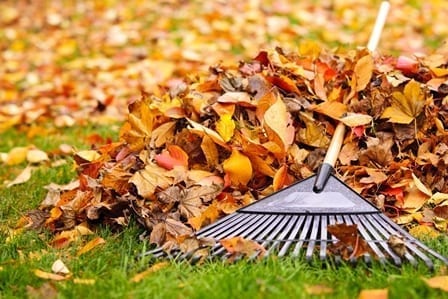How To Safely Remove Yard Waste – Tips on Fire Prevention, Part 1 of 4

Fire Prevention Week, It’s A Hot Topic Right Now!
At Bearingstar, we believe that proper planning helps us better protect valuable personal insurance clients, like you, and the important people in your life.
So, with Fire Prevention Week coming up in October, there’s no better time than today for us to get you ready for it.
Following is the first in a series of four fire safety blogs that will feature important, and easy, precautions you can take to keep your family and home safe from a fire catastrophe this fall and throughout the holiday season. If you’d like to check out the other blogs in the series, you can find them here:
- How To Prep Your Fireplace – Tips On Fire Prevention
- How Often Should You Check The Age Of Your Smoke Alarms?
- Helpful Safety Tips To Prevent A Cooking Fire
How To Safely Get Rid Of Yard Waste
The hint of color in the New England trees is a sign that autumn is just around the corner. And with this change in season will come one of a homeowners biggest chores: raking and discarding piles of leaves, twigs, and sticks. So let’s discuss what is the safest way to approach this formidable task.
Who here thinks burning is the best method? If you are nodding your head, it’s probably because this tactic does seem like a more natural form of disposal than the other options. And for the family members doing the pick up, it is certainly more efficient, easier, faster, and less expensive than say bagging or burying.
But – and this is a very big but – it’s illegal across both Connecticut and Massachusetts, along with burning grass, hay, stumps or tires. The reason? Leaves do not burn “cleanly” according to both the MA and CT Departments of Energy and Environmental Affairs. Burning leaves creates an acrid smoke and adds chemicals, such as hydrocarbons or carbon monoxide, to the air. This causes more than just a nuisance; for many people it can threaten their health, especially if they have asthma or lung problems. Plus, and quite obviously, burning leaves presents the greatest fire hazard. In the midst of leaf burning, weather can turn rapidly, as it often does in New England, and any change in winds or other atmospheric conditions can make a controlled situation suddenly very unsafe.
In some Massachusetts and Connecticut towns and cities, homeowners are allowed to burn brush, cane, driftwood and forestry debris, but this type of open burning is subject to many regulations, including the need for a permit. There are also several communities in Massachusetts and Connecticut that do not allow residential open burning at all.
Always check your town or city website for specific information for your area. Or, in Massachusetts, you can call the Open Burning Hotline at 617-556-1021.
Better yet, Bearingstar recommends our homeowners bag or bury yard waste this fall instead of burning. Yes, we know it’s a pile of work, but these methods significantly reduce fire hazards, are great for the health of your lawn, and are far less irritating to your neighbors.
One more thing we’ll ask you to keep in mind this fall; ignoring the growing layers of leaves on your lawn will do more than just annoy your neighbors. It can be dangerous. In fact, given the extremely dry and often windy conditions of these past few months, leaves surrounding your home can become a dangerous fuel source. Per the University of California Berkley’s Division of Agriculture and Natural Resources, it’s critical to move these combustibles to a distance of at least 30 feet from your home, garage, outbuildings, and propane or other fuel tanks. Otherwise, you are putting your home and family at a much higher risk exposure for fire.
Do you know what is covered by your home, condo or renters insurance policy in case of partial or total loss due to fire or smoke damage? At Bearingstar, your agent will make sure you understand your policy, what protections it provides, and that the coverage is exactly suited to your specific situation. Most important, we will walk you through the claims process so you will be prepared just in case. Contact us at one of our 19 Massachusetts or Connecticut offices for more information.
Back to Blog